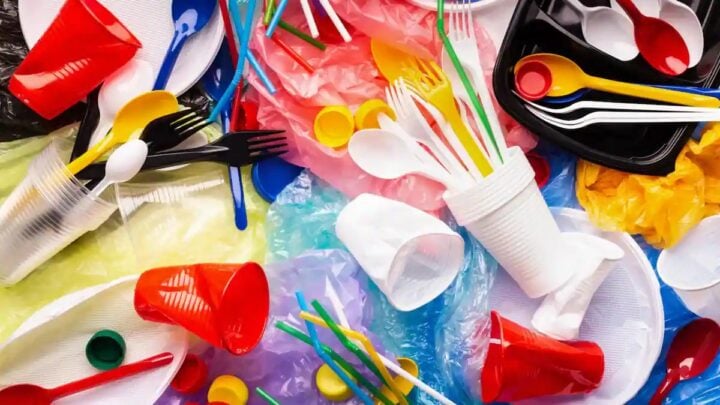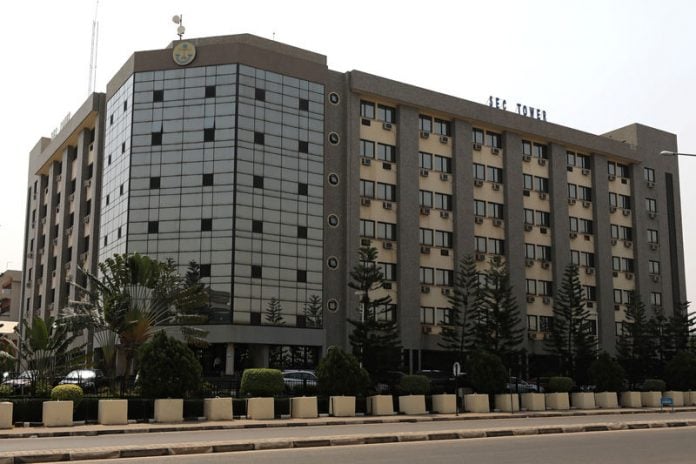Environmentalists, manufacturers differ on single-use plastic ban
With the Lagos State government’s ban on certain single-use plastics (SUPs) taking effect on July 1, 2025, local manufacturers have kicked against the policy, stating that small businesses and producers will be adversely affected.
However, environmentalists said they are in support of the ban, citing the need to preserve the environment and reduce waste.
Director-General of the Manufacturers Association of Nigeria (MAN), Segun Ajayi-Kadir, last week, urged the state government to reconsider its stance, saying the decision was not informed by credible data, out of tune with the reality of Nigeria’s socio-economic situation and bereft of more ingenious and beneficial solutions.
Arguing that the association was not consulted before a ban was announced, he said industries were not given room for any form of discussion on the challenges that could be associated with the ban and how to mitigate them.
The DG said hundreds of jobs are at risk as over 89 per cent of operators in the plastic value chain depend on the trade of these SUPs as their main source of income.
A former MAN chair, Apapa branch and Executive Director, Universal Luggage Ltd, Frank Ike Onyebu, expressed worry that several manufacturers will be affected, adding that with all the problems the country has, especially low industrialisation, a ban is not needed now.
“This should not be our priority right now. Most SUPs are already being recycled, even though the numbers could be better. For instance, we need items like sachet water and nylon in our factory, but we don’t even get enough because of the country’s poor waste management and low awareness. Some supermarkets no longer give nylon bags to customers but ask you to buy, doesn’t that defeat the whole purpose of reducing nylon use?” he queried.
He expressed concern that more companies keep shutting down daily and urged the state government not to add to this statistic, but instead, come to a homegrown solution that works for all.
The government should be encouraging manufacturers, especially during these tough times. We are not saying the environment is not important, but the government should step up its recycling efforts and encourage the players already in that field. What works in Europe and the U.S. will not necessarily work here, and the fact that they banned nylons doesn’t mean we should rush and copy them.

“The government should sit down with manufacturers and frontally tackle this issue together. A ban should be the last resort. Our survival should be prioritised. Hundreds of small businesses have already closed shop in the last few years, and this ban would swell this number more if care is not taken. They will lay off staff and increase the number of job seekers,” he said.
However, an environmentalist and Chief Executive Officer, Taiwo Adewole and Associates, Taiwo Adewole, said the manufacturers are not sincere. He said they were given 18 months’ notice before the ban was effected and had more than enough time to arrive at a solution.
Noting that the federal government came up with the Extended Producer Responsibility (EPR) to encourage manufacturers to think about end use and recycling, he said plastic bottles were exempted from the ban because those manufacturers made EPR provisions.
“Sprite, for instance, changed its green bottle to a clear one to make it easier to recycle. What are the SUP producers doing to tackle waste and improve recycling?
“Our canals and gutters are loaded with a lot of waste, and most of these plastics are not biodegradable. Our environment should come first before profit,” he said.
Urging the manufacturers to meet Producer Responsibility Obligations (PRO) to ensure the end of life of these products does not affect the environment, he urged them to upgrade the materials being used for plastics production and make provisions for buyback, as the burden lies with them more.
“The Food and Beverage Recycling Alliance (FBRA) spends millions on recycling yearly, what do other manufacturers and their associations do in this regard? Have they made efforts in recycling these products? Set up collection points and so on? This will help in creating side jobs and boost the circular economy as more people would become involved. The manufacturers have been asked to upgrade the thickness of the nylons to at least 40 micron and above, they are yet to comply. They should upgrade their systems first, improve recycling and encourage circularity before asking for the ban to be set aside,” he said.
You may also like...
Diddy's Legal Troubles & Racketeering Trial

Music mogul Sean 'Diddy' Combs was acquitted of sex trafficking and racketeering charges but convicted on transportation...
Thomas Partey Faces Rape & Sexual Assault Charges

Former Arsenal midfielder Thomas Partey has been formally charged with multiple counts of rape and sexual assault by UK ...
Nigeria Universities Changes Admission Policies

JAMB has clarified its admission policies, rectifying a student's status, reiterating the necessity of its Central Admis...
Ghana's Economic Reforms & Gold Sector Initiatives

Ghana is undertaking a comprehensive economic overhaul with President John Dramani Mahama's 24-Hour Economy and Accelera...
WAFCON 2024 African Women's Football Tournament

The 2024 Women's Africa Cup of Nations opened with thrilling matches, seeing Nigeria's Super Falcons secure a dominant 3...
Emergence & Dynamics of Nigeria's ADC Coalition

A new opposition coalition, led by the African Democratic Congress (ADC), is emerging to challenge President Bola Ahmed ...
Demise of Olubadan of Ibadanland
Oba Owolabi Olakulehin, the 43rd Olubadan of Ibadanland, has died at 90, concluding a life of distinguished service in t...
Death of Nigerian Goalkeeping Legend Peter Rufai

Nigerian football mourns the death of legendary Super Eagles goalkeeper Peter Rufai, who passed away at 61. Known as 'Do...




